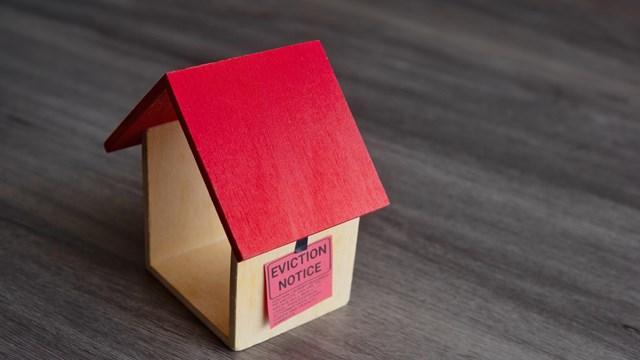Community living comes with lots of rules and regulations – many of which are codified in largely static, hard-to-amend governing documents like proprietary leases and condominium declarations. Others are laid out in the more flexible context of house rules, which can (and should!) continue to evolve as times change and community values and demographics shift. House rules can cover everything from when your monthly charges are due, to what types of pets (if any) you’re allowed to keep, to the times and days you can move into or out of your unit – and a whole lot in between. Living by the rules may be easy for some, difficult for others. What can a board do to enforce their own community’s standards and no-no’s? Fines and fees are one option.
How Widely Used Are Fines and Fees?
Barbara Polychronis, a property manager with FirstService Residential in Bridgewater, New Jersey, says that in her experience: “Most condominium communities have fines and fees for enforcing rules and regulations. They don’t always like to use them, though. It depends on the board.” She explains that most communities will send a warning letter first, before actually levying the fine.
Humberto Roque, a management executive with The Duo Condominium at AKAM On-Site in Dania Beach, Florida, says that in his market: “Fines are very prevalent. Most condominium associations use fines as a form of discipline with owner/members, with the fines usually outlined in the governing documents. These documents can be amended when necessary to refine, add or eliminate fines and fees.”
Marcy Kravit, who is also with AKAM, explains that Florida’s condominium statute requires a 14-day notice period before a fine can be enforced. A fine many not exceed $100 per violation, and fines may be imposed for each day that a violation continues – up to $1,000 per violation. A grievance committee of the condominium must hear the case and determine the final outcome.
“Fines are a tool in the toolbox to compel a change in behavior,” says Brian Butler, Vice President of Property Management with FirstService Residential in Chicago. “Most buildings we manage have some fines. It could be as simple as a late fee on monthly common charges, or something hefty on lease restrictions like Airbnb violations. These fines and fees are generally found in the association’s or corporation’s house rules – not in the governing documents. The dollar amount of the fine is at the board’s discretion. They can amend house rules when necessary, and can have ranges and categories for different fines.”
What Counts as ‘Finable’?
Fines can be levied for all types of infractions. Typical infractions include pet violations (ranging from the pet relieving itself in the lobby or elevator to the size or breed of pet permitted); smoking in non-smoking areas; parking in non-reserved areas; noisy or disruptive behavior; and in some cases failing to observe pool etiquette. The list is long, and can differ sharply from one community to another.
Roque points out that in Florida, pool behavior is a major issue. In mixed-age communities, approved activities and behavior for kids in pool areas is one place where fines often come into play in order to maintain a safe facility – and to avoid some liabilities. For example, children must be accompanied to the pool and supervised by their parents for as long as they’re using the space; failing to do so will result in the parent (or whichever association member is hosting the child) being fined. Another major issue that can result in a fine is bringing glass containers into a pool area; owners must consider the damage a broken glass can do. Pool infractions might carry some non-monetary punishment as well, like a temporary ban from the pool facility – but the pros we spoke with agreed that a stiff fine for letting your 6-year-old run around the pool deck with an empty glass bottle could be an excellent way to see to it that you keep a closer eye on your kid in future.
Daniel Wollman, CEO of Gumley Haft, a large co-op and condo management firm based in New York City, makes a very interesting point about the effectiveness of fines. “First of all,” he says, “there aren’t that many offenses to fine for. You’re not going to fine a shareholder or a unit owner for leaving their shoes in front of their door because there is a rule that prohibits leaving things in the hallway. The question is, is the infraction egregious enough? The infractions and the fines can’t be overly subjective.” A good example, he suggests, is smoking restrictions. “In New York City, each residential building must have a smoking policy by law. That smoking policy lays out the rules. That limits the association’s or corporation’s ability to fine.”
Butler agrees, and adds: “There has to be enough investigation to support the fine. You can’t just do it on suspicion. And that’s where boards can get in trouble. You need concrete evidence. Cigarettes thrown off a balcony and landing on another balcony or terrace can cause a fire. But you don’t have proof as to who threw the cigarette butt off their balcony in the first place. It’s unlikely that residents will agree to undergo DNA testing to determine who the perpetrator is.” However, Butler does mention one association he knows of that requires all residents to have their pets’ DNA registered with the building in the event of a ‘walkies’ mishap, so that the building management can identify the perpetrator through pet-poop forensics.
Vindictiveness or Vindication?
Polychronis relates a story of a board member who began to play fast and loose with their association’s fining policy. “If the board member came into any kind of conflict with a neighbor, even for the slightest issue, she would routinely snoop around that association member’s unit looking for infractions of the rules—a forbidden window unit air conditioner, say. She would then contact the management and tell them to send out a notice of a fine to the unit owner immediately.” Association members complained that they would find her snooping around their units late at night, often looking through the windows. She was also known to deliberately place trash in the shrubbery to keep the maintenance staff on their toes.
Unique New Jersey
Unlike other states, New Jersey has a very strict regulation about resolving disputes between owners and communities, whether they are condominiums, co-ops or HOAs. All disputes are subject to alternative dispute resolution (ADR) to attempt a solution before the matter is escalated to litigation. This is true with fines and fees as well, explains Polychronis. “The board will send out a warning letter before levying a fine. Even in this case, if the owner of the unit objects, they are entitled to have their argument heard through ADR. If they are found to be culpable, or there is a second infraction, the condominium is certainly within their authority to assess the fine or fee.”
Polychronis also points out that generally only a small percentage of owners will simply pay the fine without question. Many will ignore it while continuing to pay their monthly assessments. While the association can’t refer an owner’s account for collection due to non-payment of fines, many boards will direct management to send a collection notice to an owner who has refused to pay properly levied fines simply to get a conversation going with the offending owner.
Airbnb and Other Homesharing Apps
One big factor recently in play when it comes to fines is Airbnb. The popular homesharing platform has experienced varying levels of resistance in many cities nationwide. Some destination cities (New York, for example) have enacted very detailed prohibitions against Airbnb rentals. Chicago has a similar ordinance, though not as aggressive as New York’s. In response, many communities – particularly co-ops, which have more authority over owners than condominiums – have enacted rules to eliminate short-term vacation rentals from their buildings and complexes entirely.
Butler points out that the effectiveness of fines in this specific situation is one of dollars and cents. “Over the last several years [renting one’s unit] via Airbnb has become the most finable event we see. But the money made through the Airbnb rental may be so substantial for the owner that the fine becomes just part of the cost of doing business. The fine has to be so onerous—and perhaps other punitive measures must be employed as well—as to make continuing the behavior untenable for them.”
For his part, Wollman doesn’t see the effectiveness of fines overall. “How much can you fine someone? A hundred dollars? It rarely changes behavior. You need to talk about the problem with the resident. People have a better understanding if you explain things to them, rather than just say no.” He also warns that in the end, if owners or shareholders are unhappy about the fines as enacted, they can change the board of directors through a vote. More ominously, if someone is very unhappy about the enactment or enforcement of a fine that he or she feels is unwarranted, there is the risk of litigation.
Renters and Subletters
Rules, regulations, and the fines and fees that accompany them apply to all residents — whether they are unit owners, or renters in units owned by someone else. The question is who pays a fine in a sublet or rental situation? Much of that depends on house rules. “The tenant gets fined if the unit is rented out,” says Roque. “If the tenant doesn’t pay, the owner is responsible.”
One way or another, the association will get its money. “Leases are usually for one year, and while we rarely evict a tenant for nonpayment of a fine, the board will simply refuse to permit the owner to renew the lease,” as per governing documents, Roque continues. Either way, the owner will have to pay the fine in the end.
Another provision to ensure fairness is to set up a grievance committee. When an owner is subject to a fine, the case should be reviewed by that committee to insure impartiality and transparency, and to make certain that the fine was not charged arbitrarily or in retaliation for some action on the part of the owner.
In the final analysis, boards should be careful about how, when and for what reasons they employ fines to control unit owners’ behavior. Rules are rules, but not everyone may agree with specific protocols and prohibitions. Some may see the rule as unfair or spurious, while others could view it as perfectly reasonable. Good communication between neighbors should be employed before punishment, while fines and fining in general should be used as a last resort.
A J Sidransky is a staff writer/reporter for The New Jersey Cooperator, and a published novelist.










3 Comments
Leave a Comment